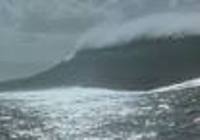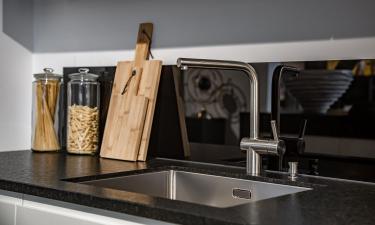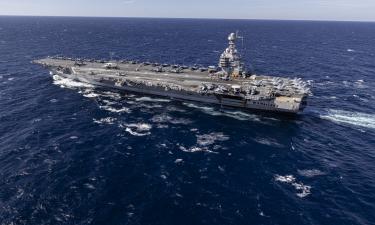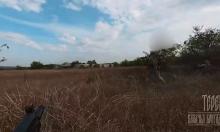Islands struck by Solomon Islands tsunami need water and food

Jake Suri says that his rise will run out next week and if there is no help he will have nothing to feed his four children.
His thatched house was swept away and his potato and cassava crops were spoiled when a massive earthquake less than 45 kilometers (25 miles) off the coast of his Solomon Islands home made the sea swell up, wiping his tiny village away.
"Everything is destroyed. We have no food now," Suri, 33, told The Associated Press, standing amid the debris of his shattered village on Friday.
Hamba village lies in a quiet lagoon on Rendova Island, an isolated atoll in the Solomon Islands' western province, which bore the full force of Monday's disaster.
The island is a 2-hour motorboat ride from the provincial center of Gizo, where most tsunami aid is being distributed. Because of delays and lack of transport, the aid has been slow to reach many outlying villages.
Hamba received a few sacks of rice on Tuesday, but supplies are running low.
Suri and the other villagers are living on one bowl of rice per person each day, and it will take another season before their crops are productive again after the salt water is drained from their fields.
Some Hamba residents were fishermen, but their canoes were smashed or swept out to sea, and many are too afraid to return to the ocean that has been their lifeline to the outside world for hundreds of years.
"Our children still get fear because it's the first time they see the sea like that," Suri said. "In the night, they don't sleep."
Suri and the other villagers ran to the hills when the sea swept in. Four people were injured in the melee, but no one was killed. The United Nations says at least 34 people died in the disaster, but all officials say they expect that toll to rise.
Hamba's resident are sleeping outside in the jungle high above their wrecked homes. Their water supply is contaminated, and their clothes are covered in salt and dirt.
The Rev. John Pihavaka from the Anglican Church of Melanesia paid the village a Good Friday visit, bringing words of encouragement and collecting information to help the relief effort.
"It's totally wiped out," he said, pointing to the tangled wreckage of Hamba's church, its wooden pews splintered and strewn across the ground.
Many residents of the Solomon Islands are Christians. While most were too exhausted and traumatized to mark the Good Friday holiday, others went ahead with whatever resources they could muster.
At the tiny hamlet of Feskei on Kohingo Island, about 30 villagers packed into the tiny church to watch a DVD depicting the passion of Christ.
Monday's tremor knocked several wooden houses off their high wooden stilts, and even those with homes still standing were too afraid sleep inside because of the frequent aftershocks that continued to rattle the region five days after the disaster.
"All of the people here are afraid of what will happen next," said Kalisto Suiga, 23. "We sleep outside. It's not safe in the houses."
Protected by outlying islands, Foskei was spared a direct onslaught from the tsunami. But the rush of water caused the sea level to rise, wiping out the village's freshwater supply.
"Our only source of water is the tank, but it's now empty," Suiga said.
John Lilo, from the aid group Save the Children, said the loss of subsistence gardens and fishing boats could have devastating consequences for the Solomons' outlying islands.
"Food, water and shelter, those are the things we need now," he said during a tour of the region. "Most of the communities we visited today ... they have very little to survive on."
Subscribe to Pravda.Ru Telegram channel, Facebook, RSS!




